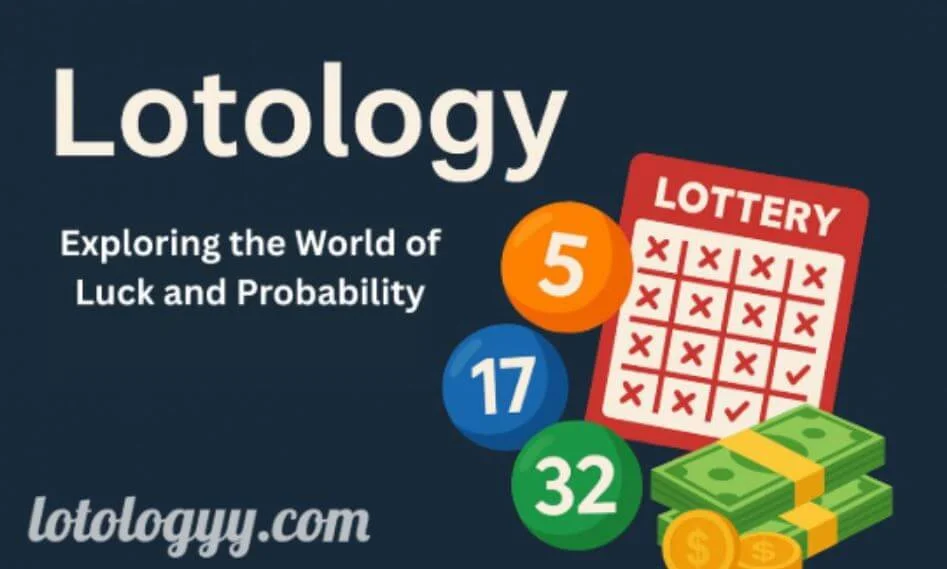Introduction to Lotology
Lotology is the multidisciplinary have a look at of success, danger, randomness, and the psychological, cultural, and mathematical frameworks that form how people engage with uncertain consequences. Rooted within the evaluation of lotteries, gambling, and probabilistic selection-making, lotology is going beyond video games to explore how human behavior is encouraged with the aid of perceived randomness in ordinary lifestyles. It combines insights from mathematics, psychology, sociology, economics, and philosophy to examine why individuals are attracted to video games of luck, how they interpret odds, and what social or emotional meanings they assign to random occasions.
Historical Background
The roots of lotology can be traced lower back to historic civilizations that used chance-based totally techniques—like drawing masses or casting dice—for desire-making, divination, and assigning responsibilities. In historical China, early lottery systems had been used to fund public works, on the equal time as in Rome and Greece, lotteries done roles in army and civic strategies. Over the centuries, the concept of the usage of risk to determine effects advanced into contemporary lottery structures, widely adopted via governments for public investment. This historical reliance on randomness laid the premise for the have a look at of human conduct in terms of success, forming the foundation of modern-day lotological inquiry.
The Science Behind Lotology
The science in the back of lotology is rooted in possibility theory, facts, and sport theory, specializing in how randomness and danger function in structured structures like lotteries and playing. Lotologists analyze mathematical fashions to determine odds, expected outcomes, and risk ranges related to various games of chance. They also use statistical equipment to discover patterns, anomalies, or biases in random quantity era. By combining these analytical techniques with behavioral insights, lotology allows give an explanation for why human beings often misjudge possibilities and make irrational choices while confronted with uncertain results.
Psychological Foundations of Lotology
The psychological foundations of lotology discover how human behavior, cognition, and emotion impact perceptions of success and randomness. People frequently depend on intellectual shortcuts and cognitive biases—including the gambler’s fallacy, illusion of manipulate, and warm-hand fallacy—while making choices in video games of risk. These biases can lead individuals to overestimate their capacity to predict or have an impact on random consequences. Lotology also examines how emotional factors like desire, excitement, and regret drive participation in lotteries and gambling, often reinforcing repetitive conduct via reward-based totally conditioning and superstitions.
Sociocultural Implications
Lotology famous how cultural ideals and social structures form our expertise of success and threat. In many societies, lotteries are seen as symbols of hope and opportunity, in particular amongst economically deprived agencies. Cultural attitudes towards luck—whether regarded as divine choose, fate, or non-public advantage—drastically impact gambling behavior. Additionally, group participation in lotteries often fosters network bonding, at the same time as critics argue that those systems can take advantage of susceptible populations through supplying fake hopes of wealth. Understanding these sociocultural dimensions allows give an explanation for why video games of risk remain popular throughout numerous communities.
Lotology in Practice
Lotology reveals practical application in diverse sectors, together with public coverage, accountable gaming, and virtual leisure. Governments use lotological insights to layout fair lottery systems and make sure ethical sales era, while psychologists and behavioral specialists apply it to discover and save you playing dependancy. In the tech enterprise, game developers use lotology to create balanced and transparent reward structures, specifically in on line gaming and cell apps. By combining statistical evaluation with human conduct, lotology facilitates groups construct structures which might be both enticing and socially accountable.
Academic and Industrial Applications
Lotology has developing relevance in each educational studies and industry. In academia, it’s miles studied within disciplines inclusive of psychology, behavioral economics, mathematics, and records technology to recognize human choice-making and opportunity notion. Researchers discover subjects like playing behavior, randomness interpretation, and hazard assessment. In industry, mainly within gaming, finance, and advertising sectors, lotological insights help design truthful games, predict customer conduct, and put into effect accountable playing measures. Tech organizations additionally use lotological fashions to enhance algorithms in on-line making a bet, lottery structures, and reward-based totally apps.
Common Misconceptions and Fallacies
Many humans hold false ideals about luck and randomness, especially in relation to lotteries and gambling. A not unusual misconception is the gambler’s fallacy—the concept that past losses growth the chance of future wins, whilst in reality every draw is impartial. Others believe in “lucky numbers” or styles, even though all consequences in a truthful recreation have equal probability. The illusion of control additionally leads people to think they could influence random events via rituals or strategies. Lotology facilitates debunk these fallacies by promoting statistical know-how and vital thinking.
Ethical and Legal Considerations
Lotology increases crucial moral and felony questions, mainly across the advertising and law of lotteries and gambling. Critics argue that kingdom-run lotteries may additionally make the most inclined populations through encouraging volatile financial conduct via misleading advertising and the phantasm of smooth wealth. Legal frameworks need to balance sales generation with patron protection, ensuring games of risk are honest, obvious, and responsibly marketed. Lotologists regularly contribute to the improvement of ethical recommendations and policies that save you trouble playing, promote knowledgeable participation, and guard at-chance corporations from financial damage.
The Future of Lotology
The destiny of lotology looks promising because it keeps to conform with advancements in technology, statistics technology, and behavioral research. As synthetic intelligence, system gaining knowledge of, and blockchain turn out to be extra integrated into gambling and lottery structures, lotology will play a key function in ensuring transparency, fairness, and ethical practices. Additionally, move-cultural research on good fortune beliefs and psychographic segmentation will provide deeper insights into patron conduct, helping industries create more responsible and attractive systems. As randomness turns into an increasing number of embedded in virtual environments, lotology’s influence on selection-making and coverage will most effective develop.
Conclusion
In end, lotology gives a unique and interdisciplinary attitude on how humans have interaction with success, risk, and randomness. By combining elements of arithmetic, psychology, and cultural studies, it affords valuable insights into human behavior, choice-making, and the societal implications of games of danger. As era and the gaming industry keep to adapt, lotology will play a critical role in ensuring honest practices, promoting accountable playing, and enhancing our knowledge of ways randomness influences our lives.






